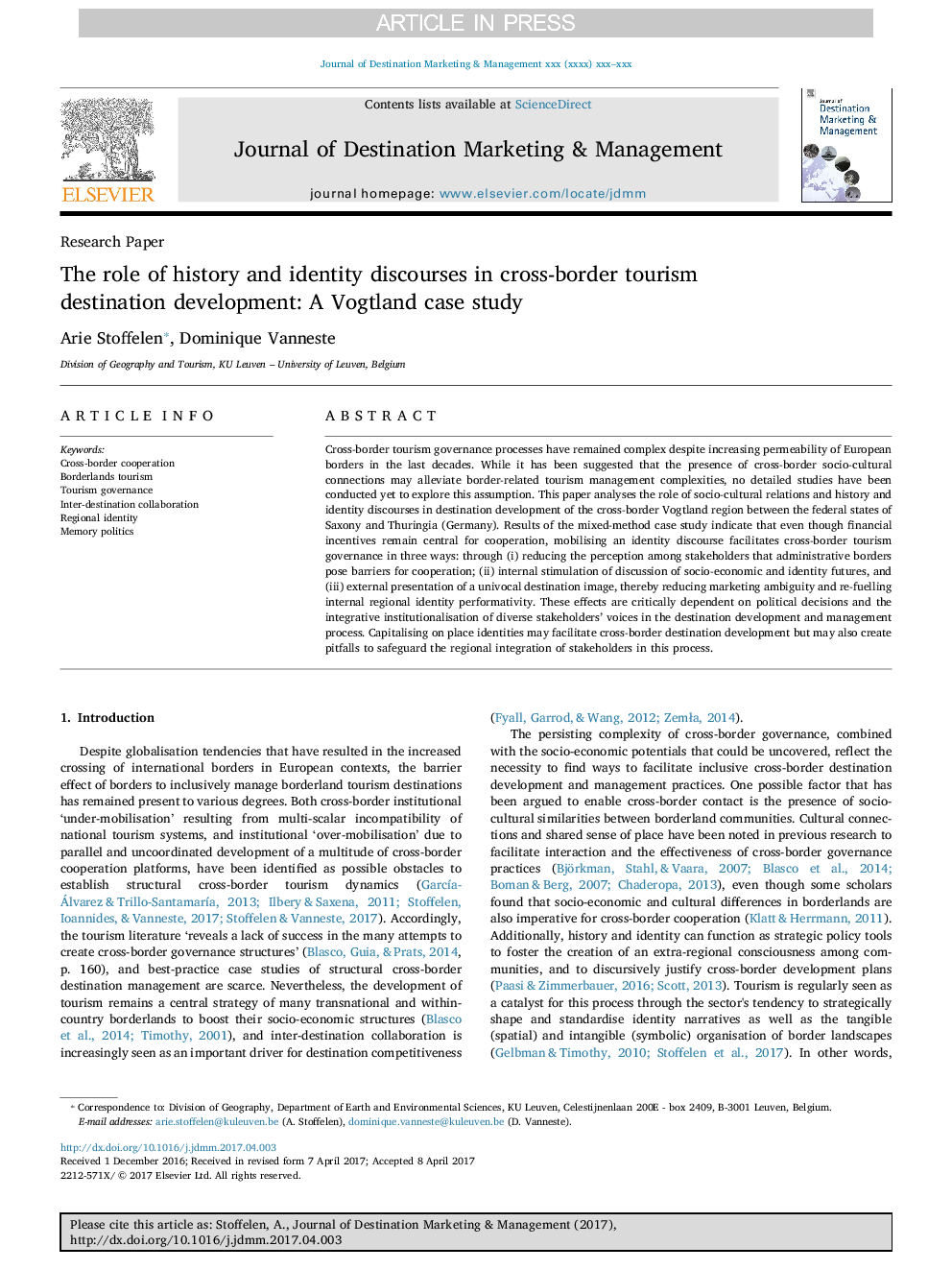ترجمه فارسی عنوان مقاله
مقاله پژوهشی نقش تاریخچه و گفتمان هویت در توسعه گردشگری مرزی مرزی: مطالعه موردی ووگتلند
عنوان انگلیسی
Research PaperThe role of history and identity discourses in cross-border tourism destination development: A Vogtland case study
| کد مقاله | سال انتشار | تعداد صفحات مقاله انگلیسی |
|---|---|---|
| 148804 | 2017 | 10 صفحه PDF |
منبع

Publisher : Elsevier - Science Direct (الزویر - ساینس دایرکت)
Journal : Journal of Destination Marketing & Management, Available online 26 April 2017
ترجمه کلمات کلیدی
همکاری بین المللی، مرزهای گردشگری، حکومتداری گردشگری، همکاری بین مقصد، هویت منطقه ای، سیاست های حافظه،
کلمات کلیدی انگلیسی
Cross-border cooperation; Borderlands tourism; Tourism governance; Inter-destination collaboration; Regional identity; Memory politics;

